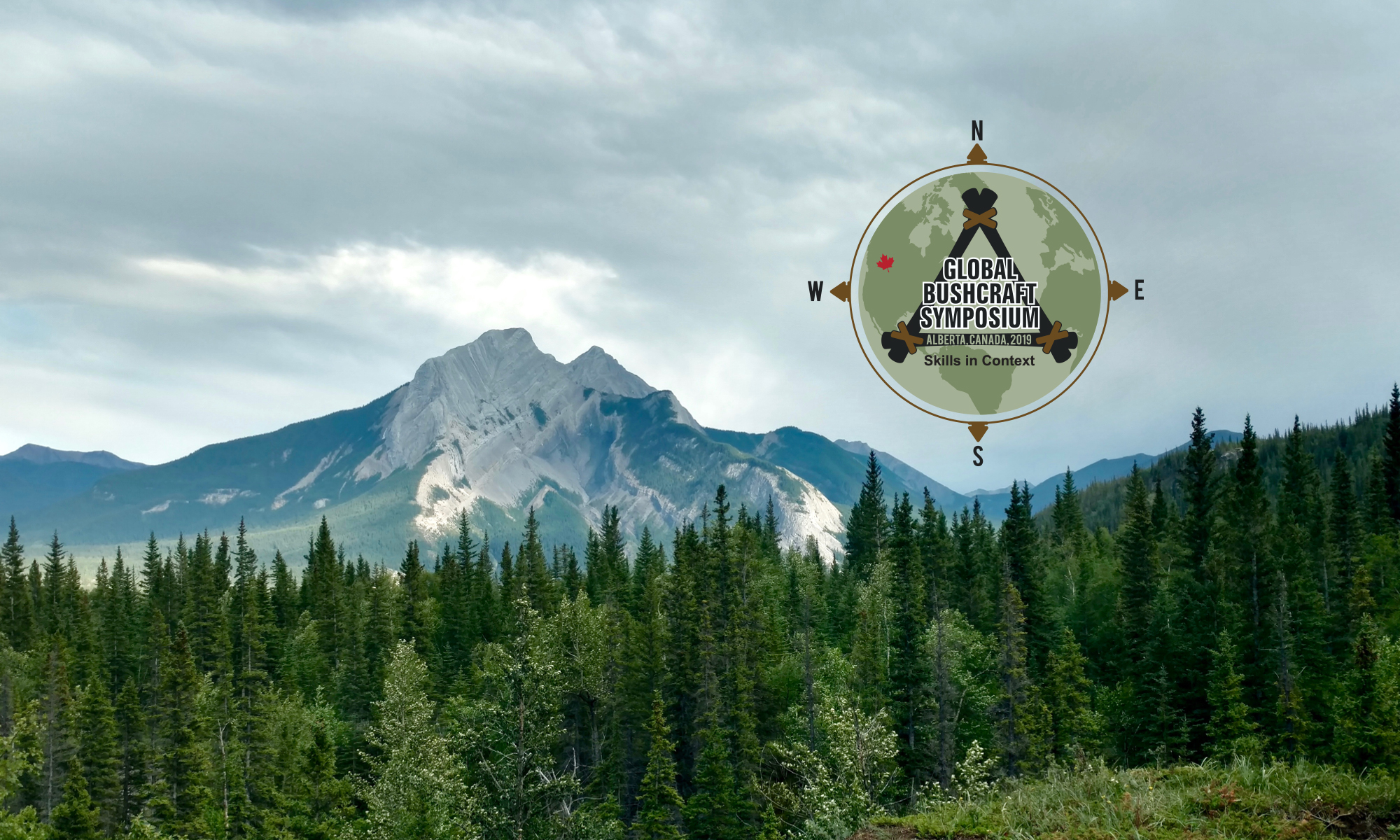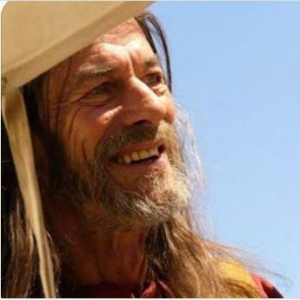 Jim Riggs (friend, teacher, craftsman, writer, icon in our community and a man who has influenced so many of us through his work).
Jim Riggs (friend, teacher, craftsman, writer, icon in our community and a man who has influenced so many of us through his work).
Jim was the “teacher of our teachers” and one of the original attendees at the first Rabbitstick gatherings in the ’70s. He was a constant presence at ancestral skills gathering for decades and his cattail mat lodge was always a central structure in camp. As author of the groundbreaking book “Blue Mountain Buckskin”, teacher of aboriginal living skills and writer/ contributor and founding member of the Society of Primitive Technology, his influence on the rest of us is still being felt today.
We have been missing Jim’s presence already for many years since his illness has kept him from being present at the gatherings, but now he is even further removed.
Jim wrote the Foreword for Steven Edholm and Tamara Wilder’s book “Buckskin: The Ancient Art of Braintanning” aka “Wetscrape Braintanned Buckskin”. This is an excerpt from it.
“A couple years and a few hundred buckskins later I published my own book Blue Mountain Buckskin, Dry-scrape, Brain-tan, a Working Manual in 1979 and the revised and expanded second edition in 1980.
It wasn’t until the original Rabbit Stick and succeeding Woodsmoke Rendezvous primitive skills gatherings in Utah from 1978-82, originated by Larry Dean Olsen and Richard and Linda Jamison, that I learned first hand there really were many others out there around the country, working from different influences, information and teachers, quietly unraveling the secrets and resurrecting the process of braintanning. When David Wescott of Boulder Outdoor Survival School reinstituted the ongoing new era of Rabbit Sticks in Idaho in 1988, and invited every experienced primitive skills practitioner he was aware of, networking began in earnest. Many additional primitively oriented programs, workshops and gatherings had been cropping up regionally during the 80’s and instructors began traveling the country to meet their peers of like minds and interests. Finally, those of us having come from our “isolated com-partments” of two or more decades of practicing and teaching, mostly via research, trial, error and experiment, could share ideas and pick each others’ brains. Likewise, newly interested people could now attend a primitive skills gathering or various regional workshops and in only a few days master a number of skills and technologies that had taken many of us years to figure out on our own.” Jim Riggs
Born Feb 17, 1944 – Died August 16, 2017. He was 73 years old.
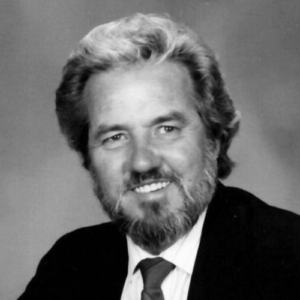 Richard L. Jamison was a noted outdoor photographer and writer. He has produced a series of ten outdoor educational films which are used in schools throughout the nation and by other instructors. Richard received national recognition for his skills when he worked as technical advisor and set designer on the film “Windwalker.” He is the director of Anasazi Expeditions and editor and publisher of Woodsmoke Journal.
Richard L. Jamison was a noted outdoor photographer and writer. He has produced a series of ten outdoor educational films which are used in schools throughout the nation and by other instructors. Richard received national recognition for his skills when he worked as technical advisor and set designer on the film “Windwalker.” He is the director of Anasazi Expeditions and editor and publisher of Woodsmoke Journal.
He worked at several ‘careers’ during his lifetime, but his greatest talent and love was as an artist and as a primitive living craftsman, instructor and leader. He worked for 30 years in the motion picture industry, specializing in period films.
Born Aug. 1, 1940 – Died Sept. 17, 2017. He was 77 years old.
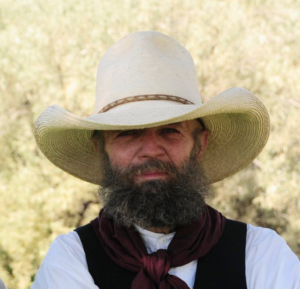 Steven M. Watts was a lifelong boy scout, teacher, artist, craftsman, interpreter, author, poet, philanthropist, musician, advocate, historian, and more.
Steven M. Watts was a lifelong boy scout, teacher, artist, craftsman, interpreter, author, poet, philanthropist, musician, advocate, historian, and more.
An academic with an encyclopedic mind when it came to history, he was that rare person who also knew how “it” all fit together.
“The learning and practice of aboriginal skills can help us all get in touch with our own roots, no matter what our particular heritage may be. If we go back far enough into our own pasts, we discover that we are all aboriginal peoples at some time in some place. The stone age is the great common denominator of humanness. ‘Primitive’ (‘first’) skills are our shared heritage” — Steve Watts 1985
A prehistorian, since 1984 Steve directed Aboriginal Studies and Traditional Outdoor Skills Programs at the Schiele Museum of Natural History in Gastonia, North Carolina. There he influenced an untold number of school children through Native American and Early Human Culture programs as well as teaching Summer Camps. Steve also ran a series of primitive technology and classic camping workshops (Kamp Kephart) for museum professionals, teachers, archaeologists and other interested adults. His replicas of prehistoric tools and weapons are featured in museums throughout the U.S.
Steve was a research associate with the Institute of Archaeology and Anthropology at the University of South Carolina and a founding board member and past president of the international Society of Primitive Technology (1996-2007). In the summers of 2005, 2006 and 2009 Steve received research grants to do research work at the Lejre Experimental Archaeology Centre in Denmark.
Between 1995 and 1999, he served as a consultant on the Twentieth Century Fox film Cast Away. He has also consulted for, and appeared in, several History Channel series — Extreme History (2003), Digging For The Truth (2005), Modern Marvels (2008), and 101 Fast Foods That Changed The World (2013).
On many occasions in conjunction with his best friend, David Wescott, he co-authored numerous published articles, presented workshops, aboriginal technology demonstrations and classic camping skills trainings throughout North America with the Acorn Patrol Classic Camping Demonstration Team.
Steve was also the author of many solo articles dealing with history, culture and technology. A collection of his writings, Practicing Primitive: A Handbook of Aboriginal Skillswas published by Gibbs Smith Publishers in 2005.
He completed his undergraduate education at Appalachian State University in 1969 and received his masters degree from Duke University in 1971. While many in the Woodcraft world know Steve as an academic, few know that early on he wanted to be a folk singer. As a young man he had even followed in the steps of Bob Dylan in New York and traveled with Jefferson Airplane in California before they were Jefferson Airplane.
To add to this most fascinating of men, he was also an ordained minister and had tremendous fun with his alter ego, Gypsy Jack (see link for a read).
“Without the context, it’s just arts and crafts,” was a frequent saying of Steve and as a “context” will be a significant focus of this symposium, his influence will be felt for years to come.
From Watts’ Practicing Primitive…
Sometimes… in the ashes… an ember is found.
Sometimes… from the ember… a fire is born.
Sometimes… by the fire… a story is told.
Sometimes… in the story… a lesson is learned.
Time is asymmetrical. We can know about the past, but cannot change it. We can influence the future, but cannot know it. We are all locked together in the split, split-second that is the present. The literal time machine of our dreams still waits for its own invention.
Born July 25, 1947 – Died March 21, 2016. He was 68 years old.
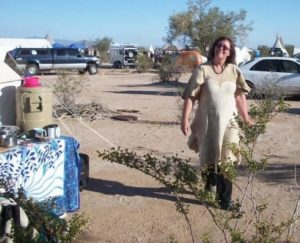 Colleen Kincaid-Smith, who for many years was one of our dear colleagues in Wilderness Survival and Primitive Living Skills, recently passed into Spirit, moving closer to her Creator, and as her husband Stan puts it – “is now on her new Journey of Mindfulness”.
Colleen Kincaid-Smith, who for many years was one of our dear colleagues in Wilderness Survival and Primitive Living Skills, recently passed into Spirit, moving closer to her Creator, and as her husband Stan puts it – “is now on her new Journey of Mindfulness”.
Colleen’s life changed completely after she attended her very first Primitive Skills event in 1995, a gathering called Northern Lights, that was held in the Slocan Valley of the Kootenay Mountains in BC. While working as an ER nurse and raising a family with her husband Paul Harvey in nearby Nelson, out of curiosity she answered an ad looking for a camp cook for this event. So she became the head cook …. and nothing would ever be the same again!
Right after the gathering was over, she announced to her children’s father that it was his turn to care for the kids and she was going to go and live up on that land and find herself again. And so she did. Living in a tipi by the creek for three years, it was only after the bears discovered her stash of Christmas baking supplies one winter that she was finally forced to leave the mountains and her beloved Kootenay lifestyle. She would head back to town, for now, but her life had been forever changed.
Colleen was the type of person who took everything that life presented to her head on and with enthusiasm, and her passion for the Wilderness Survival and Primitive Living Skills world was no exception. As a former nurse in the conventional medical profession, she ultimately embraced alternative medicine and herbal remedies in much of her work and was always researching new material in the field for her own practice. She became the camp nurse for many years at various events and gatherings and was well known for her expertise in first aid and compassionate caring of the attendees she treated.
Event participants were also treated to delicious organic coffee and decadent fresh baked brownies every morning, as well as superb lunches, all created out of the small kitchen in her home on wheels, a panel van she called Wilma. Not only was the van great for travelling, sleeping, living and cooking in, Wilma also packed around all kinds of trade goods – Colleen’s hand-crafted bags, clothing, jewelry and beads – thousands of beads in fact, as by this time, Colleen had become an avid and knowledgeable dealer in rare trade beads. She also shared with us her gift of music, her beautiful voice accompanied by her acoustic guitar was enjoyed
around the evening campfires and will be fondly remembered. We had a lot of good times and a few good laughs, that’s for sure!
Although the Primitive Skills gatherings and Wilderness Survival events such as Karamat’s Rat Root, Rabbitstick and Wintercount provided much needed community, sharing of resources, soul growth and personal support, a living still needed to be made and expenses met. So Colleen then spent several years working as a professional First Aid attendant and camp Cook for a number of fly-in logging camps in the bush up in the Far North. Not long afterwards, she was diagnosed with cancer – multiple myeloma – and given 3 to 4 months to live.
Well, with her usual determination and attitude towards the standard medical treatments and the profession in general, she turned to her vast knowledge of herbs and healing and was able to astound her doctors for the next 6 years ….. and beat that cancer. Unfortunately, it all took a toll on her kidneys and she eventually had to turn to daily dialysis to keep going ….but hey…..no problem! With her nursing background she was able to look after herself and her needs on her own and when possible, she still continued to travel and attend her beloved Rabbitstick, Between the Rivers and other gatherings right up to the end.
Colleen passed away peacefully in her sleep, in the home she made at the Parkside Organic Ranch in Plummer, Idaho with her husband Stan Smith, surrounded by love and all of her kitty cats. A beautiful, spiritual soul who knew her place in the world and found comfort within her beliefs of the afterlife, she was able to “put her affairs in order” and see clearly what was important to leave behind. Love. Memories. Her legacy is made of these ….
A beautiful soul and a beautiful being …. you will be missed but always loved …. Thank you for sharing your gifts Colleen!
Born June 10, 1959 – Died July 31, 2018 She was 59 years old.
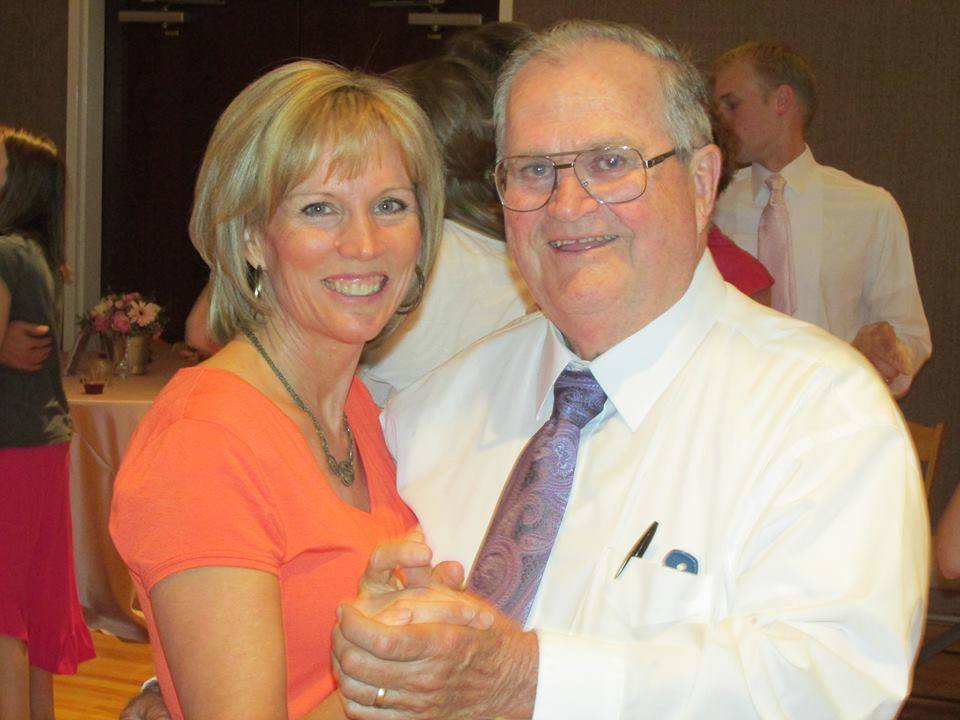
Larry Dean Olsen-Born January 23, 1939, near Jerome, Idaho, Olsen became widely recognized as the father of modern primitive survival education and a pioneer of wilderness therapy and outdoor behavioral healthcare, which serve more than 10,000 youth and young adults each year. He authored the international bestseller “Outdoor Survival Skills,” considered by many the definitive book on the subject. Soon after the book’s first printing in 1967, Olsen developed an outdoor survival course designed to build self confidence and other skills in probationary students seeking readmission to Brigham Young University. With the assistance of Ezekiel Sanchez, an early participant, the 26-day course quickly gained recognition and expanded to include adjudicated youth from the local community. In 1969, the pair was recognized for their work with a national award titled “Youth Rehabilitation Through Outdoor Survival.”
In 1988, Olsen and Sanchez formed the nonprofit Anasazi Foundation, which continues to provide Joint Commission-accredited behavioral healthcare services based in large part on the principles, primitive curriculum, and non-punitive environment of their earlier programs. Olsen remained actively involved in Anasazi’s day-to-day operations until 2002 and thereafter served as an active member of the foundation’s advisory board. He was recognized for his groundbreaking work in 2008, when he received the National Association of Therapeutic Schools and Programs’ prestigious Leadership Award.
“Countless lives have been and will be forever changed by the life and example of Larry D. Olsen,” said Anasazi chairman Michael Merchant. “There was a place in his heart for everyone—no matter where they had been or what they had done. I am grateful for his invitation to be still, to listen to, and to learn from the natural world around us and from those who have walked before us. I am grateful for his smile, his vision and his curiosity. His teachings will live on in the hearts of all of us who have and will yet walk with him at Anasazi Foundation—and the in many other wilderness therapy and outdoor programs that have been influenced by his life’s work.”
Larry Olsen and his wife, Sherrel, had 10 children, 39 grandchildren, and 20 great-grandchildren (with one on the way).
ABOUT ANASAZI FOUNDATION
Anasazi Foundation is a nonprofit (501c3), nationally recognized, licensed, and accredited behavioral healthcare provider known for its nurturing and non-punitive approach to helping struggling young people. Anasazi’s menu of services includes a 49-day (minimum stay), wilderness-based treatment program for youth 13-17 and young adults 18-25, as well as parenting workshops. Visit www.anasazi.org for more information.
Larry Dean Olsen, co-founder
Larry Dean Olsen was born in 1939 near Jerome, Idaho. His unquenchable curiosity in Native American cultures lured him to the great desert wastelands of the Western United States and their ancient inhabitants. As a boy, Larry trekked into remote canyon areas and became adept at living off the land.
Larry’s training came as he experienced survival at its most primitive level. He emulated the Anasazi or “Ancient Ones” and carefully replicated the lifestyle of the Primitive Paiutes of the Great Basin Plateau areas of the western United States. Using tools and weapons of stone and bone, digging roots and trapping game, suffering cold nights without bedding, and hot days without water or even shoes, Larry gained a unique understanding of man in harmony with nature.
In the 1960’s, Larry began teaching classes in outdoor survival in the Division of Continuing Education at Brigham Young University in Provo, Utah, sponsored by the Department of Youth Leadership. His approach to survival, based on the idea that survival training is best achieved by learning to live off the land without previously manufactured gear, won wide approval.
Over the next several years, thousands of university students field-tested Larry’s concepts. In addition to learning survival skills, Larry’s courses proved to be a vehicle for helping young men and women establish lasting values, exercise courage in the face of seemingly insurmountable obstacles, and above all, develop a compassionate respect for human life and its relationship to nature. While at BYU, Larry developed a primitive living course for adjudicated youth from the courts in Utah County. In 1969, he and his staff won a national award for “Youth Rehabilitation Though Outdoor Survival.”
Larry wrote the first edition of Outdoor Survival Skills for his students. The book created an enthusiasm for outdoor education. Outdoor Survival Skills is also well known to the National Parks Service and is sold in the U.S., England, Canada, and Italy. After reading Larry’s book, Robert Redford invited Larry to serve as the technical director for his movie “Jeremiah Johnson.”
In 1988, Larry founded ANASAZI Foundation with his long-time friend and partner Ezekiel Sanchez. ANASAZI Foundation was the first program of its kind to be licensed and later nationally accredited as a behavioral healthcare provider. Larry and Ezekiel are often referred to as the grandfathers of the Outdoor Behavioral Healthcare field.
Larry completed a bachelor’s degree in Education at BYU with graduate studies in English. He is a Wood Badge trained “Scouter” and has written instructional manuals for the Boy Scouts of America.
Larry was married to Sherrel Eslinger of Twin Falls, Idaho, and they are the parents of ten children.
Born January 23, 1939-Died December 26, 2018. He died 1 month shy of his 80th birthday.
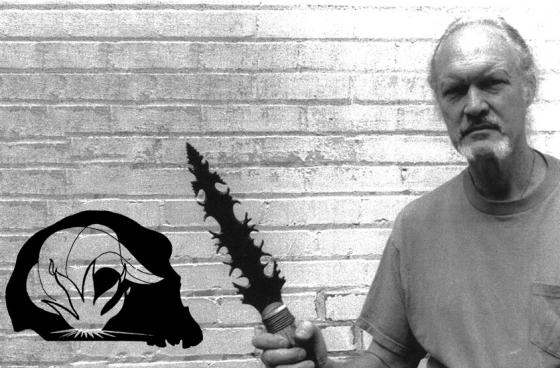
Dr. Errett Hargrove Callahan, Jr., born December 17, 1937 and died May 29, 2019 in Lynchburg, VA. He attended Christ Church School, Hampden-Sydney College, Virginia Commonwealth University and Catholic University (where he earned a master’s and PhD in anthropology). He enjoyed being a teacher, Boy Scout and Boy Scout leader and artist. He started the Mountain Man Program at Camp Monacan Scout Camp in the 1960’s. He was also founder of the Society of Primitive Technology. As an experimental archeologist (reconstructing stone knives, ceramics, bows and arrows, and primitive houses of ancient people ) he was recognized as one of the international leaders in the field. He authored several books about his projects, most recently about Danish Daggers.
He was preceded by his father, Errett Callahan, Sr. and Mary Ingraham Callahan, of Lynchburg, VA. He leaves behind his daughter, Melody Callahan, Lynchburg, VA and his son, Tim Callahan of Portland, OR, three grandchildren (Chris, Megan and Ryan), brothers David of Huddleston, VA and Bill of Amherst, VA.
Born December 17, 1937 Died May 29, 2019. Errett was 81 years old.
